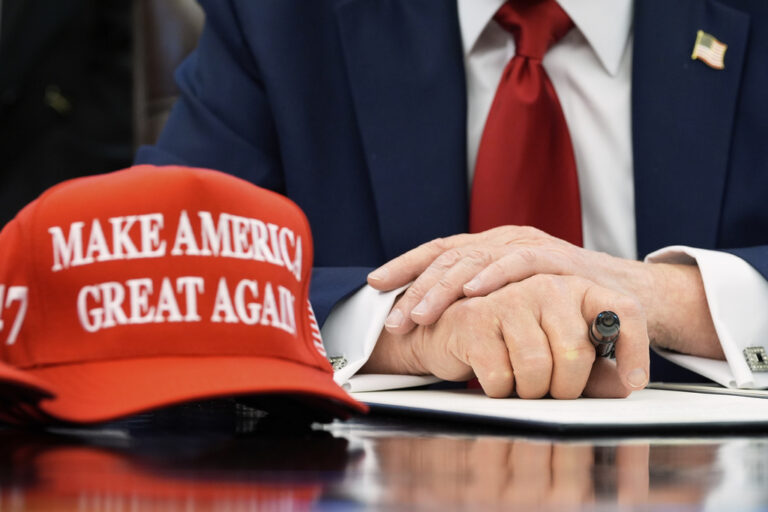Sen. Joe Manchin sounded a skeptical note Tuesday about the prospects of easing the Senate’s filibuster rules, raising doubts about whether he will provide crucial support to the Democrats’ renewed push for voting legislation they say is needed to protect democracy.
Manchin told reporters it was his “absolute preference” that Republicans support any changes and he described acting on a purely partisan basis as a “heavy lift.” Still, he did not slam the door completely shut, saying he was exploring “the options we have open.”
“I think that for us to go it alone, no matter what side does, it ends up coming back at you pretty hard,” Manchin said.
Manchin’s skepticism comes just one day after Majority Leader Chuck Schumer announced the Senate will vote soon on easing the filibuster rules. In a letter Monday to colleagues, Schumer, D-N.Y., said the Senate “must evolve” and will “debate and consider” the rule changes by Jan. 17, Martin Luther King Jr. Day, as the Democrats seek to overcome Republican opposition to their elections law package.
“Let me be clear: January 6th was a symptom of a broader illness — an effort to delegitimize our election process,” Schumer wrote, “and the Senate must advance systemic democracy reforms to repair our republic or else the events of that day will not be an aberration — they will be the new norm.”
The election and voting rights package has been stalled in the evenly split 50-50 Senate, blocked by a Republican-led filibuster with Democrats unable to mount the 60 votes needed to advance it toward passage.
So far, Democrats have been unable to agree among themselves over potential changes to the Senate rules to reduce the 60-vote hurdle, despite months of private negotiations.
Two holdout Democrats, Manchin of West Virginia and Kyrsten Sinema of Arizona, have tried to warn their party off changes to the Senate rules, arguing that if and when Republicans take majority control of the chamber they would use the lower voting threshold to advance bills Democrats strongly oppose.
President Joe Biden has waded only cautiously into the debate — he’s a former longtime senator who largely stands by existing rules but is also under enormous political pressure to break the logjam on the voting legislation.
Voting rights advocates warn that Republican-led states are passing restrictive legislation and trying to install election officials loyal to former President, Donald Trump in ways that could subvert future elections.
Trump urged his followers last Jan. 6 to “fight like hell” for his presidency, and a mob stormed the Capitol trying to stop Congress from certifying the state election tallies for Biden. It was the worst domestic attack on a seat of government in U.S. history.
How the Senate filibuster rules would be changed remains under discussion.
It seems certain that a full-scale end of the filibuster is out of reach for Democrats. Changing the rules would need all 50 votes, and Manchin and Sinema have made it clear they are unwilling to go that far.
Schumer said he has had several discussions with Manchin, and that Manchin was “entertaining” various proposals.
“I don’t want to give people the illusion that he said he would be for any of them at this point. It’s a long, hard struggle,” Schumer said.
Senators are wary of a sweeping overhaul after seeing the fallout that came after Democrats ended the filibuster for some judicial and executive branch nominees. Once Republicans took power, Sen. Mitch McConnell, the GOP leader, did away with the filibuster for Supreme Court nominations — ushering three Trump-picked conservative justices to the high court.
But despite their reluctance on major filibuster changes, Manchin and Sinema both support the election legislation. In fact, Manchin helped craft the latest package in an unsuccessful effort to win Republican support. Now the two Democrats’ colleagues are working on ways to change the filibuster so at least this legislation could pass.
Ideas include forcing senators to hold the floor for extended periods, rather than simply raise their filibuster objections — a scene that would have echoes of the 1950s and 1960s when Southern segregationists filibustered civil rights legislation.
Republicans are so worried Democrats will end the filibuster that McConnell has taken other actions to try to keep Manchin and Sinema close so they don’t join the rest of their party in making any drastic changes.
“Obviously, yes, we do talk to them, and all indications are that they still believe the Senate as an institution is important and doesn’t need to be turned into the House, or put another way, doesn’t need to be broken,” McConnell said.
One Republican, Sen. Mike Lee of Utah, argued on Monday that ending the filibuster would turn the Senate into a “Lord of the Flies”-style institution where majority rules, no matter what.
“It is absurd and dangerous to the institution itself,” Lee said in a statement. He said Schumer and his “disastrous plan” must be stopped.
(AP)












One Response
Not really a “win” for the Republicans. Given the Democrats lack of a working majority in the Senate, they would have failed to pass much, and in a few years the new rules would probably allow the Republicans to do major damage the Democrats (e.g. right to work nationally, interstate concealed carry, banning state environmental laws that impact on interstate commerce, voter ID, etc.).